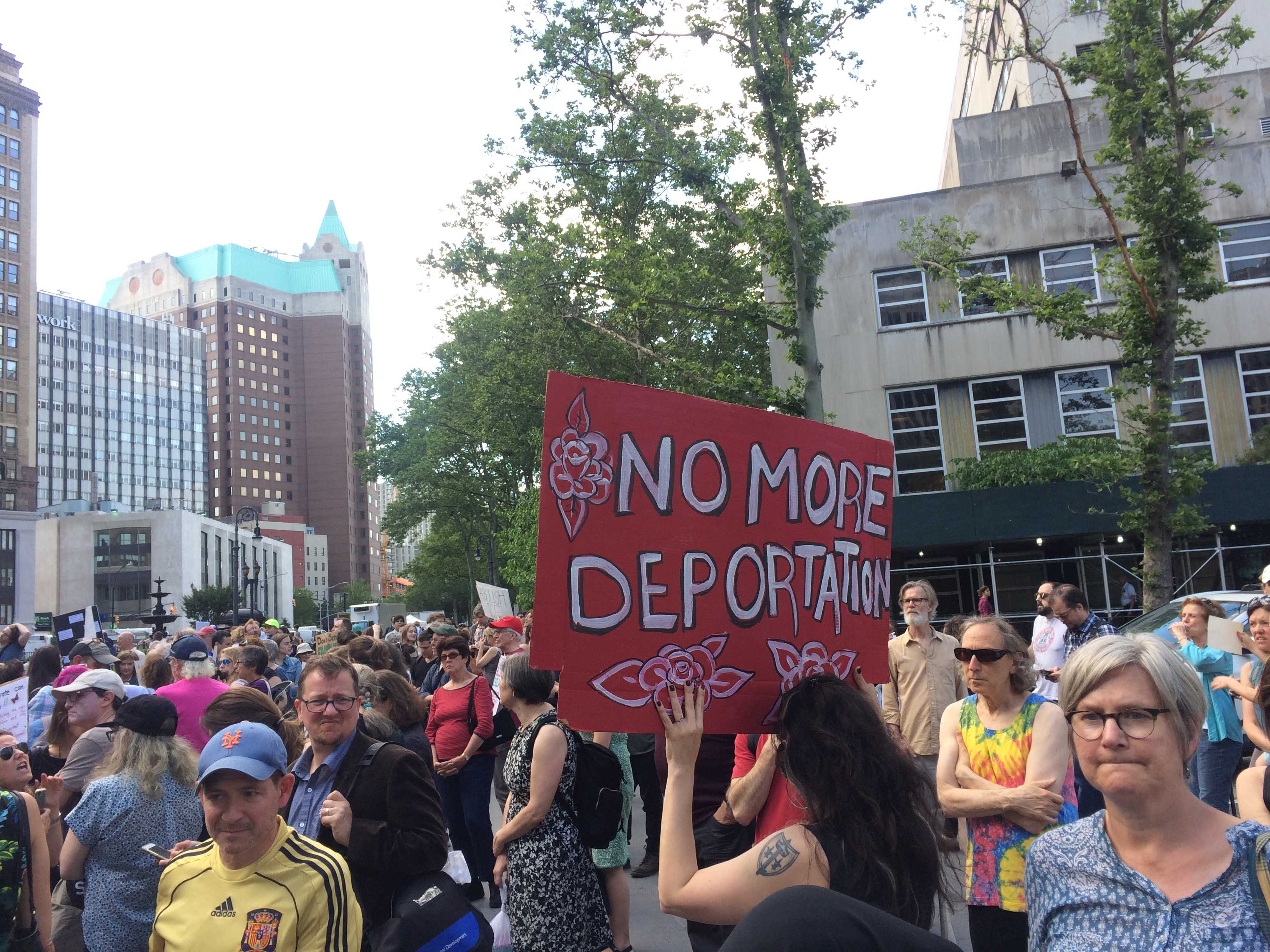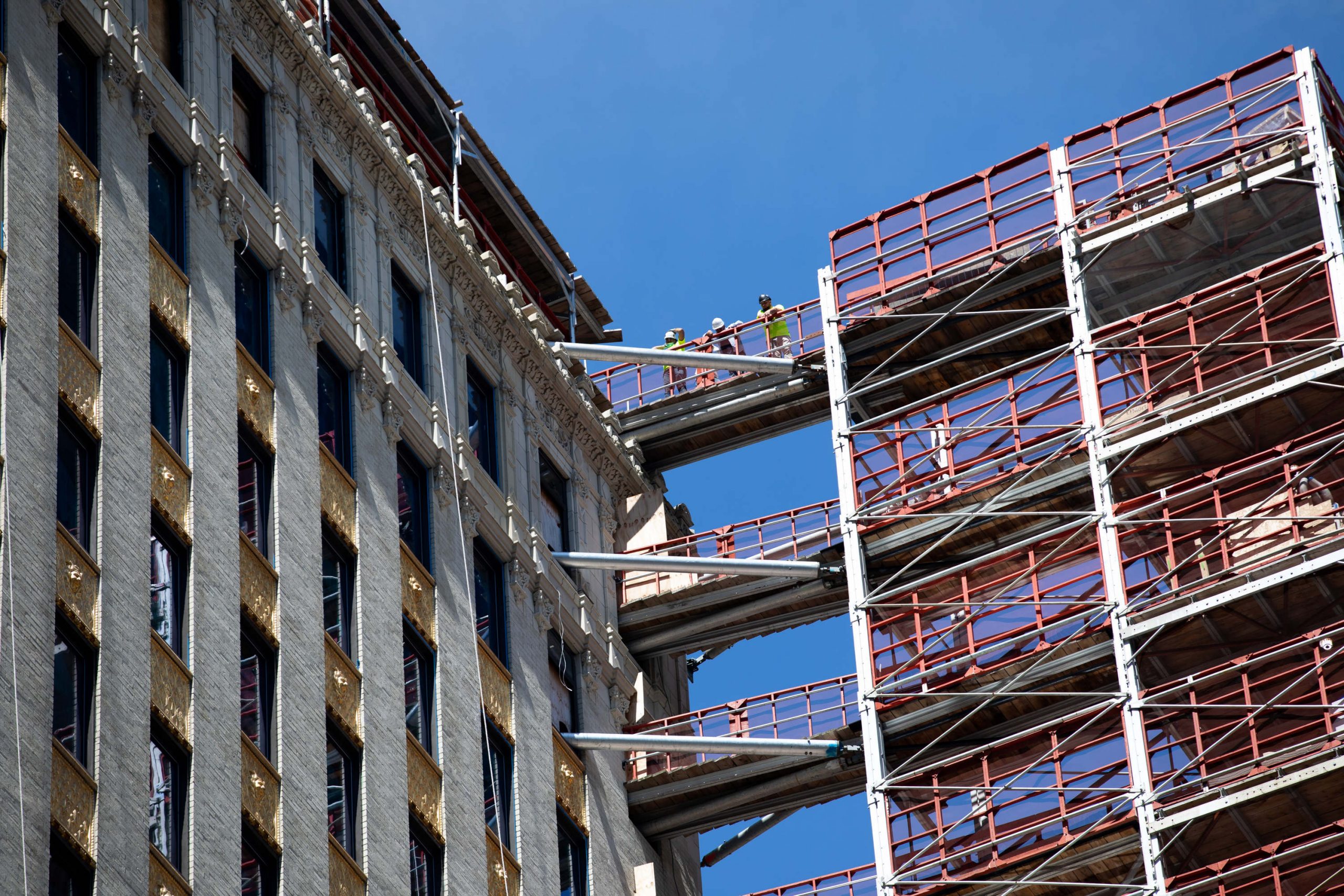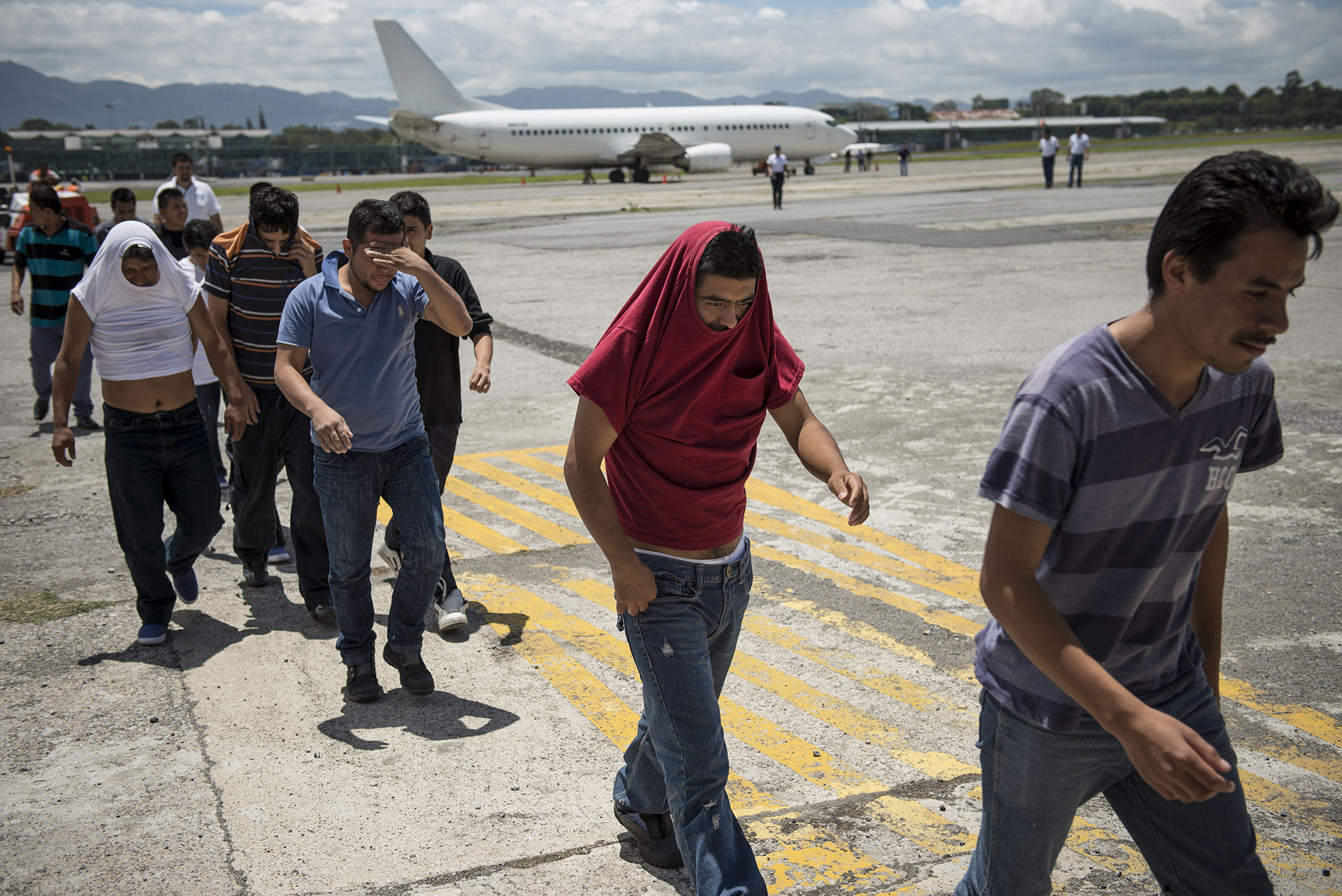During Donald Trump’s first term in office, among the more visceral consequences of his anti-immigration policies were the immigrants — perhaps dozens around the country — who sought sanctuary in houses of worship.
Now, as a possible second Trump term looms, some faith leaders are pondering that time-tested last-resort system once again.
“We have churches, we have houses of worship who are willing to protect, willing to promote and to uphold the dignity of the person,” said Reverend Juan Carlos Ruiz, an organizer and pastor in a church in Bay Ridge and longtime sanctuary advocate. In Brooklyn alone, Ruiz described a “sanctuary corridor from Park Slope all the way down to Coney Island.”
Also Read: What a President Trump Win Could Mean for the US-Mexico Border
But in a discussion last week with other organizers around the country, Ruiz said there had been talk about whether giving people a physical space in churches could make them “more vulnerable,” as opposed to having them in a less-publicized home. With the threat of mass deportations, large areas where many immigrants might congregate like a church or a shelter could be a concerning flash point. “So there are teams, task force groups, like in every neighborhood that is thinking of housing people,” Ruiz said.
It’s one of many new realities that immigrant advocacy groups and faith leaders are considering as they prepare for a potential second Trump administration. The former president has placed anti-immigration rhetoric and policy at the center of his campaign, foreshadowing radical moves such as using the National Guard for immigration enforcement, reviving the Alien Enemies Act, or expanding his previous attempt to ban travelers from certain predominantly Muslim countries.
To defend against this, New York groups known for aiding immigrants are making preparations across the board, getting ready for litigation as well as lobbying city and state legislators. There is a particular emphasis on community education, training the trainers and expanding the ability for immigrant neighborhoods to “self organize block by block,” said Natalia Aristizabal Betancur, deputy director of Make the Road New York, an influential group that organizes and advocates for immigrants. The idea includes being “able to create networks of communication among neighbors so that they are able to keep in contact in case of any ICE activity or police activity.”
Groups with legal resources are ironing out “rapid response protocols” to bombshell events, said Camille J. Mackler, founder of Immigrant ARC, a statewide coalition of immigration legal service providers.
Mackler pointed to the so-called “Muslim travel ban” that Trump tried to put in place a week into his first term, which served as a rallying moment for immigrant advocacy groups. Lawyers and organizers flocked to JFK Airport to aid refugees and others trapped in legal limbo amid the chaos of Trump’s order.
Also Read: Asylum Seekers to Trump: “Why Do You Hate Immigrants So Much?”
The twice-revised travel ban, which ultimately reached the Supreme Court, looms large as a symbol for immigrant defenders this time around. It energized new partisans and bolstered new organizing: Immigrant ARC itself was formed as a collaborative effort of lawyers responding to the ban. Established social justice outfits like The Legal Aid Society, which represents low-income New Yorkers, deployed staff to JFK as well, and it marked the beginning of a “deluge of requests” from media outlets about immigration issues, said Redmond Haskins, a Legal Aid spokesperson.
With that in mind, Legal Aid has done media training for more than two dozen attorneys and staff in their immigration law unit. These are attorneys who could be representing clients in detention, said Haskins, and the training covered messaging as well as mock interviews. “I’d pretend to be Errol Louis,” Haskins said.
Significant Vulnerability
To some in the immigrant advocacy world, preparing for everything from appearances in the media to ones at the Supreme Court is the only possible solution in the face of a significant threat.
There is also concern that the Trump administration would be more skilled at actually achieving its immigration policies.
Mackler remembered thinking that the original version of the Muslim travel ban felt like the administration just “grabbed it off the printer, didn’t even reread it for typos.”
“This time they’re way smarter and savvier,” she said. Trump’s promise to take advantage of the the Alien Enemies Act of 1798, infamously used after Pearl Harbor to detain Japanese-Americans, is an example of the “depths” that his administration would be willing to go, Mackler argued, but it showed how they are ready to “pull the levers of government this time.”
Also Read: New York Dreamers Brace as DACA Faces the Fifth Circuit, Again
Advocates are already sounding the alarm about the threats potentially to come: immigrant families being separated, immigrants being detained in jails far from home, and even the economic impact of tens of thousands of newcomers in New York alone losing work authorization at a precarious time for the American economy.
Some groups are also concerned about physical safety. One New York City immigrant advocacy organization that requested anonymity told Documented they are adding security guards and bullet proof doors at their offices, in fear of white supremacist threats.
Ruiz, the sanctuary organizer, highlighted that sense of broader danger, calling the threat to immigrants the tip of the iceberg.
“This is really an attack on our democratic values,” he said.














